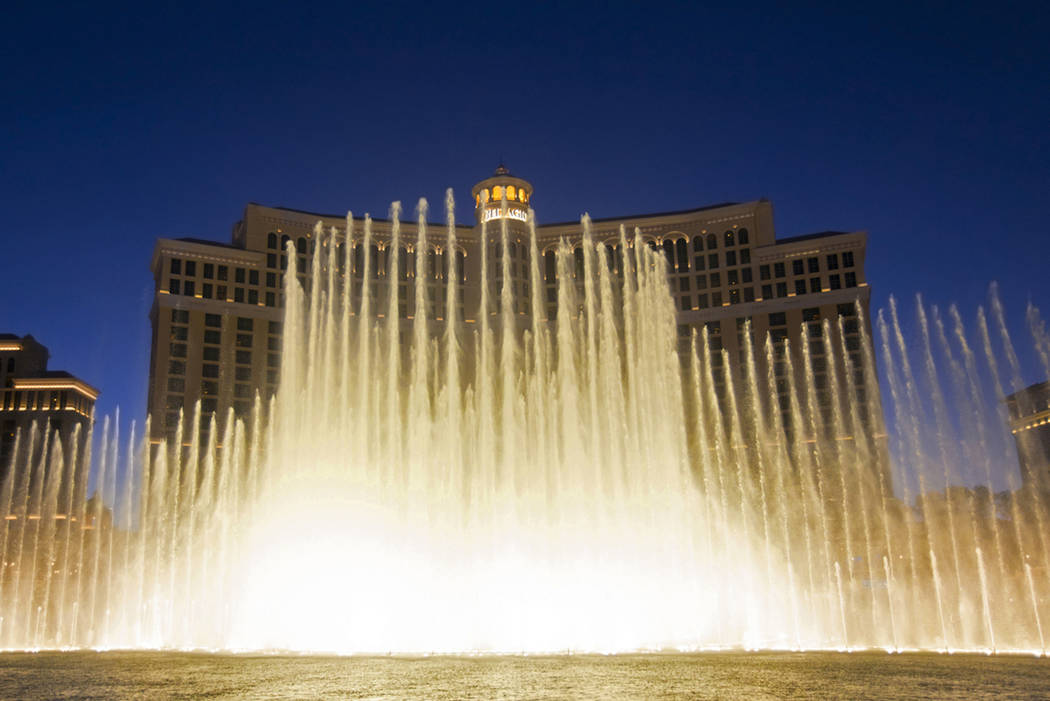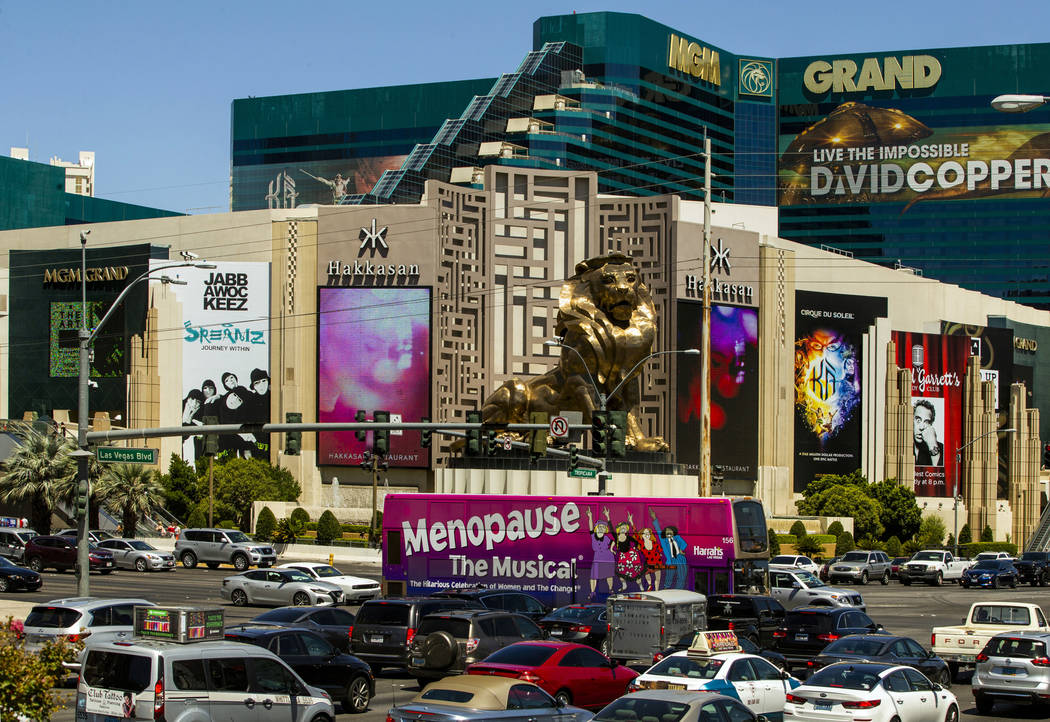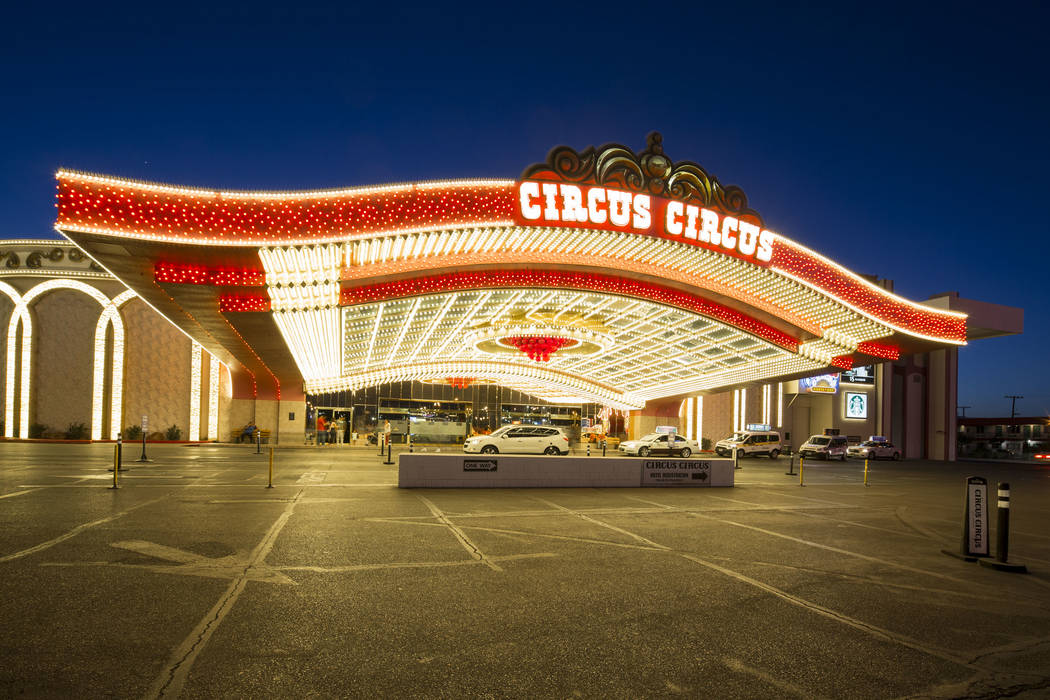MGM might be looking to sell some Las Vegas Strip assets
Business opportunities abroad and the possibility of a recession could be pushing MGM Resorts International to sell some of its Las Vegas Strip assets, according to analysts.
Bloomberg reported this week that the company is looking to sell and lease back its MGM Grand and Bellagio properties. Others have said the company is close to selling its Circus Circus property on the north end of the Strip — although some gaming analysts find that hard to believe.
According to some experts, these sales could be big money-making moves for MGM, giving it an advantage as it looks to secure a coveted gaming license in Japan. Additionally, the moves could help the company deleverage its balance sheet ahead of the next recession.
Deleveraging opportunity
Bloomberg reported earlier this week that MGM is in advanced talks to complete a sale-leaseback of the MGM Grand and Bellagio with Blackstone Group Inc.
The two properties — along with Circus Circus — are the last Las Vegas Strip assets where MGM owns the real estate. If MGM does sell MGM Grand and the Bellagio, the properties would go to MGM Growth Properties, the company’s affiliated real estate investment trust. The company would lease the properties back and continue to manage the resorts.
A Monday note from Deutsche Bank Research estimates the sale-leaseback of the two properties could generate gross proceeds between $5.6 billion and $6 billion.
Representatives from Blackstone and MGM declined to comment.
During a call to investors in July, CEO Jim Murren said MGM was continuing “to make progress” with its newly formed real estate committee and hoped to report back in the coming months.
“The committee is exploring all options with very clear guideposts in mind,” Murren said, referencing MGM’s goals to free cash flow, maximize the value of its owned real estate and create shareholder value. “I am increasingly optimistic that the committee’s work will achieve these goals, and anticipate sharing their results in early fall.”
Deutsche Bank gaming analyst Carlo Santarelli said the sale-leasebacks of the Bellagio and MGM Grand could be those results.
“These are two key pieces of real estate,” he said. “If you’re MGM, you can expect a healthy premium for those assets. … I think they’re evaluating ways to unlock value.”
Macquarie hospitality analyst Chad Beynon said the sale-leaseback would provide a way for MGM to reduce its debt.
Deleveraging is “needed at this time … particularly if (companies are) exposed to highly volatile markets like Las Vegas, where revenues fell 16 percent during the last recession,” he said. “With interest rates coming down to historic lows and ample liquidity, we believe it’s a good time for MGM to explore value for some of these irreplaceable assets.”
Jefferies analyst David Katz said in a Tuesday report that while the sale-leaseback would add value on a net basis, it also could add long-term risk “through the resulting reduced flexibility,” which could diminish MGM’s valuation multiple.
“If (talks of the sale-leaseback) were to prove true in some form, we believe the development would be modestly positive for MGM,” Katz said in the report.
Brendan Bussmann, a partner at casino research firm Global Market Advisors, said he views the potential sale-leaseback as a way for MGM to boost domestic and international expansion plans.
“Anything MGM or other operators can do to shore up their balance sheet and get more cash is positive,” Bussmann said.
But Santarelli said he doesn’t believe MGM is in a position where it needs to stockpile cash. If MGM were to be awarded one of three gaming licenses in Japan, it would take years before construction begins and MGM would have to pay for half of the costs.
MGM shares closed down $0.08 to $29.51 on Wednesday, down 0.27 percent. Shares of Blackstone Group — which also owns The Cosmopolitan of Las Vegas — closed down 1.25 percent to $52.85.
Circus Circus chatter
Rumors of the sale of Circus Circus have also been circulating among those in the gaming community.
An anonymous source sent documents dated July 2019 to the Review-Journal that appear to show the property was for sale. MGM spokesman Brian Ahern said the company doesn’t comment on rumors.
The nearly 51-year-old Circus Circus, estimated to be worth between $850 million and $950 million by Beynon, has been a gold mine for MGM over the years. Between 2015 and 2017, the property posted the fastest percentage growth in average daily room rate and cash flow among MGM’s Strip resort properties.
Bussmann said the sale of Circus Circus wouldn’t come as a surprise. The property is often viewed as an outlier among MGM’s other properties, and has been treated as such — for example, it’s not included in MGM’s M Life Rewards loyalty program.
But the sale doesn’t seem to add up to Santarelli.
“I would be surprised if there were to announce something,” he said. “When you look at the land parcel that’s there, over 100 acres of real estate on the Las Vegas Strip — albeit at the northern end — (it’s) still Strip-fronted real estate that’s producing (cash flow).”
According to Bussmann, that land could be attractive to potential buyers.
“It’s an opportunity to start a resort from the ground up,” he said. “There is a tremendous desire to have an asset on the Las Vegas Strip.”
And with more development on the north side of the Strip — including Resorts World, the Drew Las Vegas, renovations at the STRAT and more — Bussmann said the area is suddenly starting to look appealing
“That’s going to be the happening place on the Strip,” he said. “Whoever were to purchase (Circus Circus) would have some prime real estate in a growing area.”




















